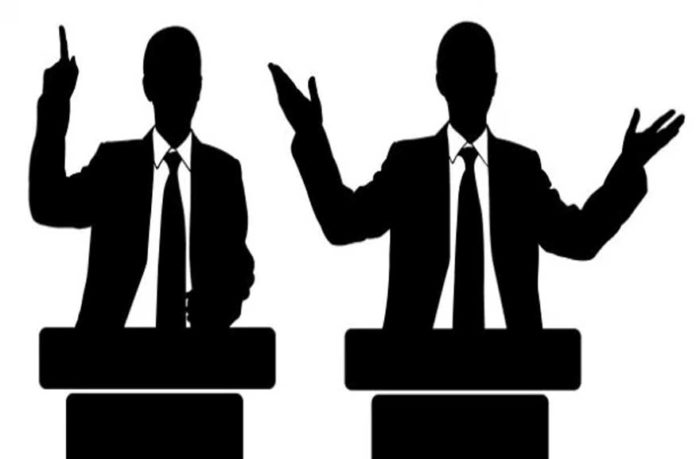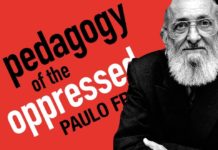Disclaimer: The Eqbal Ahmad Centre for Public Education (EACPE) encourages critical and independent thinking and believes in a free expression of one’s opinion. However, the views expressed in contributed articles are solely those of their respective authors and do not necessarily reflect the position or policy of the EACPE.
We, the residents of 21st century, are enjoying such freedoms which our ancestors were unaware of. For instance, they thought that some people were so sacred and so close to God that they deserved to be our undisputable rulers. People used to live in an environment where they were tortured if they dared to disagree with their rulers. It was customary to obey the rulers and it was quite against to question traditional norms of the society. In the past, it was near to impossible to preach a new idea without facing big opposition by fundamentalists.
People having traditional thinking and unwilling to change their minds have existed in all times. If we reflect back in history, those who tried to question traditional thinking had to suffer persecution. Take the example of Socrates who was sentenced to death by drinking a poison by the majority just because he questioned traditional thoughts and offered a new set of ideas. The most difficult front to challenge happens to question the religious authorities. Less people have this courage. Martin Luther king was the one who argued against the slavery, but the church leaders said that it was validated by their religious scriptures. Finally rationality won and now we have a good moral standard where slavery is illegal according to the Universal Declaration of Human Rights.
The culture of debate made that happen. People came forward and challenged the stagnant thoughts. As a result new ideas emerged. As time passes, things change, and irrational ideas cannot go along. Heraclitus once said, “No man ever steps in the same river twice, for it’s not the same river and he’s not the same man.” Like same, it is said that time makes ancient good uncouth. Nature remains indifferent to what we believe, and we need to change our ideas based on new set of evidences. It’s the changing mind that makes progress, not the stagnant one. That is what we call learning in modern terms. The progress of a society can be judged by its acceptability to change and new ideas. One of its indicants is how many books are getting published in a society, and more importantly what they are conveying. Sadly, we have almost nothing innovative to publish and even a few people who write books here complain that nobody reads. So instead of writing books, ironically we do not even read books. If you ask your professor what is he studying now a days, and you would find that he believes it is students’ duty to read books, not his as he has found the job – his ultimate goal! In such a state of affairs, we find very few people with broad mind and wide spectrum of knowledge and ideas.
We need to establish a culture of healthy discussions and debates. It is again sad that here even our normal conversations turn into a brawl, let alone debates.
One of the main causes of this entire decline is our lack of interest in pursuing for truth. We have lost the culture of reading and understanding new ideas and we are not in the habit of reading. Nobody reads books especially those which are opposite to one’s pre-established ideas, as it needs courage to face an alternate discourse.
We need to establish a culture of healthy discussions and debates. It is again sad that here even our normal conversations turn into a brawl, let alone debates. We, as a society, needs to learn that having different views or disagreeing with someone else is not something to feel upset, rather it is a way forward. Following others is easy, but what matters is how much critical thinking we are applying. The British philosopher Keith Ward says, “The more reasonable you are, the more you disagree with anybody else.”
Science is all about making hypothesis and trying to test them by deep reasoning. If that hypothesis does not confirm to test, then it is wrong. And if does confirm, then we accept it. Take an example: Peter Higgs proposed the mechanism that suggested the existence of Higgs Bosons in 1964, but it was 2013 when CERN experimentally showed that Higgs field does exist. If our hypothesis does not confirm to evidence, then we throw it out and come up with a new hypothesis. So, in science this way a debate continues and ideas keep getting refined in a rational way. Similarly, in real life one must give others right to say whatever they feel or think.
I think it is good to live in an environment where people disagree with you. Those people help you reassess your stance on a certain idea and this will teach you lots of new things. Even you will look closely to evidence again and again and they will pinch you to think about other side of ideas. And if there is evidence opposite to what you believe, then I feel it is better to change your mind because it is not good to live a deluded life.
But here as we know debates are not proving themselves productive, be iton TV channels or any private discussions. Another form of discussion can be witnessed on the social media, where one can blame others without evidence, as well as one can act responsible and utilize this forum productively.
An educated debating culture is needed, where things are judged based on relevant information and evidences rather than our personal prejudices.
There are some norms for a debate. For instance, if our opponent is proven wrong in a debate, we should act graceful and not brag. It is our collective psychology that if somebody looses argument, we assume he’s defeated. That’s not the proper way, as debates are for a collective cause to reach to truth, and there’s nothing to get personal. No one is loser, truth is the winner. There’s no need to grow unnecessary personal sensibilities. Also, we have to be mature in our thinking so that others’ opinions don’t offend us. Everybody has a right to say whatever they want to say. Moreover, we have to look for the standard of argument.. Most of our discussions go irrelevant mainly because we cannot differentiate between fact and opinions. And we wrongly mix up the two resulting in a disaster. In addition, we do not have experts to address a particular issue. In private conversations, as well as in organized conversations unprofessional people keep addressing things. For instance, our journalists are all rounders, as they pose to know science, religion, economy, politics and what not.
The other issue is that of strawman argument. We have to know no matter how immoral a person is in his daily life, we need to care for the idea he is giving. On the contrary, we go on to say that this man is wrong because he has affairs; this person is wrong because he drinks. But hold on these so called things which you consider to be evils has got nothing to do when he is arguing, say about the climate change. While arguing about any topic, just talk about it, as the character of a person does not really matter while arguing about something.
An educated debating culture is needed, where things are judged based on relevant information and evidences rather than our personal prejudices. We must differentiate between people and ideas. Talking about people and talking about ideas are two different things; ideas are never sacred and no idea is immune to scrutiny. Take this advice of Ralph Waldo Emerson, “Let me never fall into the vulgar mistake of dreaming that I am persecuted whenever I am contradicted.”
We have a choice to be offended but we have no right to ask others not to offend us. It is said one cannot speak truth without offending the majority. We should be talking about new ideas, new possibilities, new systems, new solutions, new ways of life, new ways of talking and new ways of finding the truth. This is the only way we can progress and move towards betterment of humanity.
Therefore we should come out of our ego, personal opinions, and the strings attached with us from our birth like our country or nation, religion, or race etc, and then we keep spending our entire life defending them. We need to come out of them.
About the Author:
The writer is doing F.Sc (Pre-Engineering). He has a deep enthusiasm for physics and mathematics. He is also a member of Science Talent Farming Scheme (STFS) of Pakistan science foundation (PSF).







